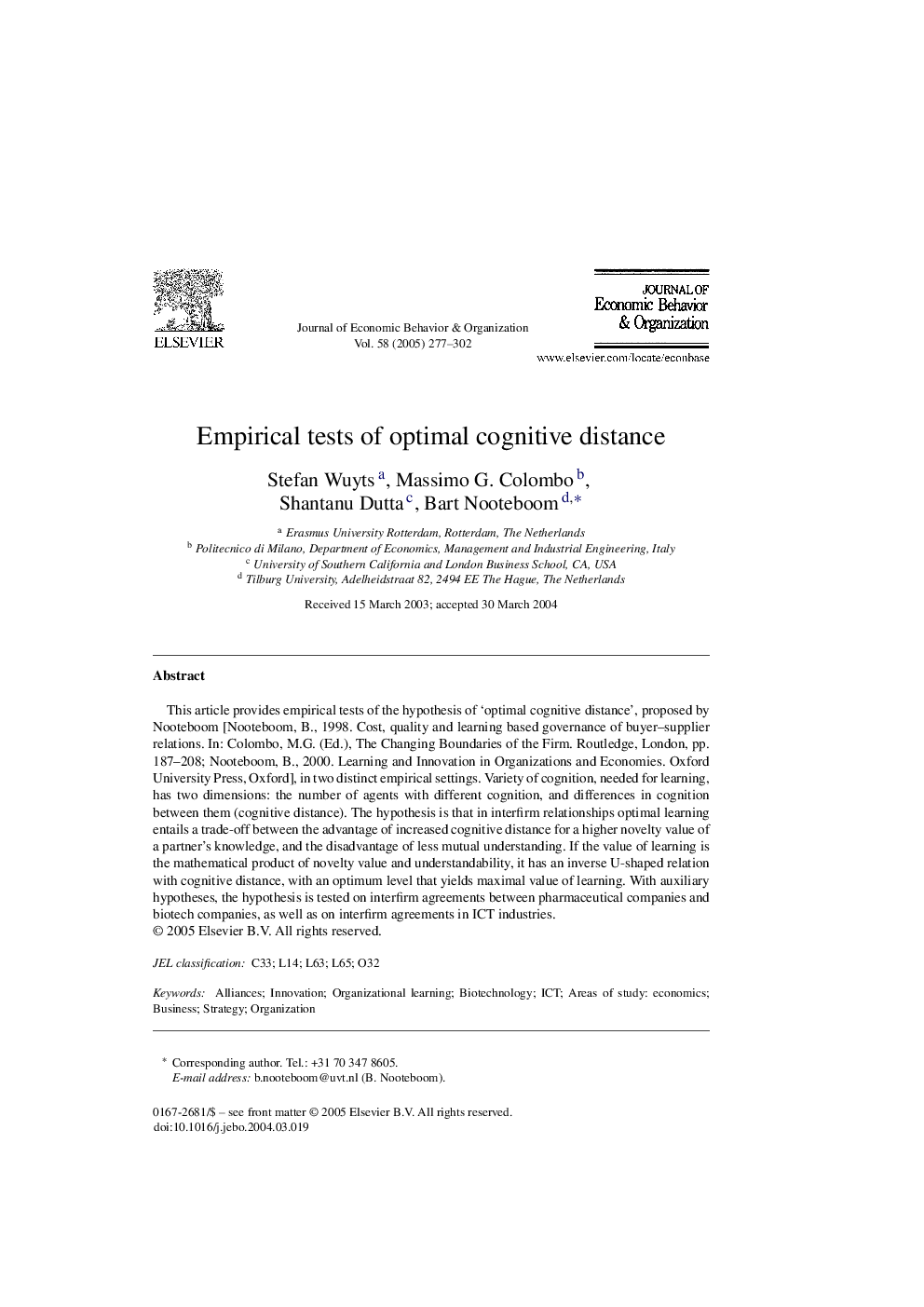| کد مقاله | کد نشریه | سال انتشار | مقاله انگلیسی | نسخه تمام متن |
|---|---|---|---|---|
| 10437725 | 912422 | 2005 | 26 صفحه PDF | دانلود رایگان |
عنوان انگلیسی مقاله ISI
Empirical tests of optimal cognitive distance
دانلود مقاله + سفارش ترجمه
دانلود مقاله ISI انگلیسی
رایگان برای ایرانیان
کلمات کلیدی
موضوعات مرتبط
علوم انسانی و اجتماعی
اقتصاد، اقتصادسنجی و امور مالی
اقتصاد و اقتصادسنجی
پیش نمایش صفحه اول مقاله

چکیده انگلیسی
This article provides empirical tests of the hypothesis of 'optimal cognitive distance', proposed by Nooteboom [Nooteboom, B., 1998. Cost, quality and learning based governance of buyer-supplier relations. In: Colombo, M.G. (Ed.), The Changing Boundaries of the Firm. Routledge, London, pp. 187-208; Nooteboom, B., 2000. Learning and Innovation in Organizations and Economies. Oxford University Press, Oxford], in two distinct empirical settings. Variety of cognition, needed for learning, has two dimensions: the number of agents with different cognition, and differences in cognition between them (cognitive distance). The hypothesis is that in interfirm relationships optimal learning entails a trade-off between the advantage of increased cognitive distance for a higher novelty value of a partner's knowledge, and the disadvantage of less mutual understanding. If the value of learning is the mathematical product of novelty value and understandability, it has an inverse U-shaped relation with cognitive distance, with an optimum level that yields maximal value of learning. With auxiliary hypotheses, the hypothesis is tested on interfirm agreements between pharmaceutical companies and biotech companies, as well as on interfirm agreements in ICT industries.
ناشر
Database: Elsevier - ScienceDirect (ساینس دایرکت)
Journal: Journal of Economic Behavior & Organization - Volume 58, Issue 2, October 2005, Pages 277-302
Journal: Journal of Economic Behavior & Organization - Volume 58, Issue 2, October 2005, Pages 277-302
نویسندگان
Stefan Wuyts, Massimo G. Colombo, Shantanu Dutta, Bart Nooteboom,